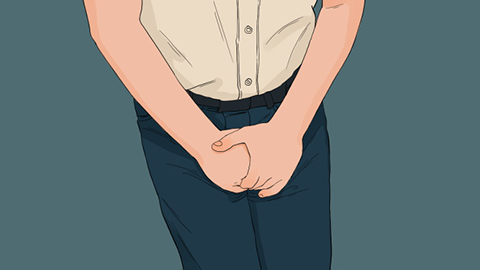What causes genuine urinary incontinence?
Generally, genuine urinary incontinence may be caused by aging, childbirth injuries, benign prostatic hyperplasia, spinal cord injury, multiple sclerosis, and other factors. Symptomatic management through general treatment and medication may be necessary. If discomfort occurs, it is recommended to seek timely medical attention and undergo appropriate treatment under a physician's guidance. Detailed explanations are as follows:

1. Aging
With aging, the supportive strength of the pelvic floor muscles gradually weakens, which may lead to genuine urinary incontinence in women. It is recommended to strengthen pelvic floor muscle strength through exercises such as Kegel exercises to improve symptoms of urinary incontinence.
2. Childbirth Injury
During childbirth, injury may damage the urinary sphincter muscles or nerves that control urination, leading to genuine urinary incontinence. It is recommended to perform pelvic floor muscle exercises, biofeedback training, and other methods to help restore urinary sphincter function.
3. Benign Prostatic Hyperplasia
Aging, androgen activity, and other factors may collectively cause benign prostatic hyperplasia. Enlargement of the prostate compresses the urethra, affecting the closing ability of the urinary sphincter, causing urine leakage when intra-abdominal pressure increases. This is often accompanied by symptoms such as frequent urination, increased nocturia, and difficulty urinating. It is recommended to take medications such as tamsulosin hydrochloride sustained-release capsules, Qianlieshutong capsules, and Longbisha capsules under a physician's guidance.
4. Spinal Cord Injury
The spinal cord is an important neural center controlling bladder and urethral functions. When the spinal cord is injured, it may lead to dysfunction of the urinary sphincter, causing genuine urinary incontinence, possibly accompanied by limb paralysis, sensory abnormalities, and other symptoms. It is recommended to take medications such as mecobalamin tablets, vitamin B12 tablets, and oryzanol tablets under a physician's guidance.
5. Multiple Sclerosis
Multiple sclerosis is mainly caused by autoimmune reactions, viral infections, and other factors. It can impair signal transmission between the brain and the bladder, resulting in overactive bladder or urethral sphincter dysfunction, affecting urinary control. Symptoms may include difficulty urinating, urinary retention, urgency, and more. It is recommended to follow medical advice to use medications such as glatiramer acetate injection, dimethyl fumarate enteric-coated capsules, and teriflunomide tablets to relieve symptoms.
It is recommended to avoid consuming stimulants such as caffeine and alcohol in daily life, and maintain regular water intake. Do not reduce water consumption out of fear of leakage, as this may lead to other health problems.




